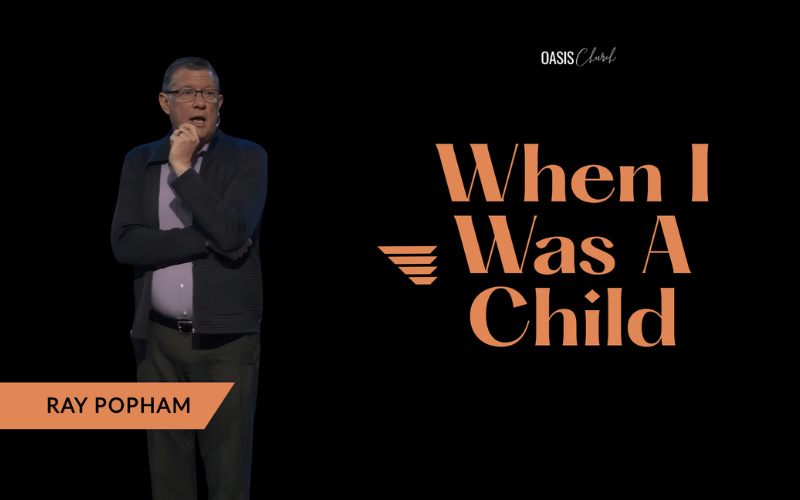When I Was a Child: How Childhood Experiences Shape Our Spiritual Maturity
Have you ever wondered why some people seem to use their gifts boldly while others hold back? The answer often lies not in our adult experiences, but in our childhood. Understanding how our early years shaped us is crucial for living into our fullest potential as God’s masterpiece.
Where Does Mastery Really Begin?
Many people think spiritual maturity and using our gifts effectively begins in adulthood. But mastery doesn’t begin when you turn 18 or when you become an adult. Mastery began in your childhood.
The gifts God placed in you were there before you were even born. From the time you were born until you grew up, those gifts were trying to come out, trying to shine, trying to come forth. The role of the people around you was to help bring those gifts out and empower you to use them.
What Does the Bible Say About Childhood’s Impact?
In 1 Corinthians 13:11, Paul writes something that seems oddly placed: “When I was a child, I spoke and thought and reasoned as a child. But when I grew up, I put away childish things.” These words appear right in the middle of his discussion about gifts and love.
This placement isn’t accidental. Paul is addressing the Corinthian church, which was experiencing a revival and move of God’s gifts, but they were using these gifts selfishly, manipulatively, and for approval rather than out of love.
Proverbs 22:6 reinforces this principle: “Train up a child in the way he should go, and when he is old, he will not depart from it.” This works both ways – good or bad. Whatever way a child is trained, that’s the direction they’ll go, not necessarily the way of the Lord.
How Does Love Shape Everything?
Here’s a foundational truth: However you experience love is how you will express love. This principle affects everything about how we use our gifts and relate to others.
God is love, and everything else in the world is just a container for that love. Every relationship, every service, every job where we use our gifts, every interaction with neighbors – these are all containers for love, opportunities for love.
But many of us had our understanding of love shaped by childhood experiences where love was conditional, based on performance, or tied to what we did rather than who we were. This creates problems when we try to use our gifts as adults.
What Are the Three Ways Childhood Affects Us?
Paul identifies three specific areas where childhood experiences impact our adult lives:
1. How We Speak (Express Ourselves)
The way we were spoken to as children becomes the pattern for how we speak as adults. If we heard words that built us up, we tend to build others up. If we heard words that broke us down, we often speak destructively to ourselves and others.
2. How We Think (Perceive and Process)
Our childhood experiences shape how we perceive and process what happens to us. If we grew up in an environment where people always had ulterior motives, we become suspicious and can’t freely receive or give love.
3. How We Reason (Come to Conclusions)
The logic we use to make decisions was often formed in childhood. Many of us learned “don’t think for yourself – I’ll think for you” rather than being empowered to think critically and make good decisions.
Do Childhood Experiences Empower or Imprison Us?
Every childhood experience falls into one of two categories: it either empowered you to live into your potential or imprisoned you from being fully who God created you to be.
When childhood experiences empower us, we can walk into life boldly, courageously, and strongly. We’re prepared to use our gifts freely and effectively.
When childhood experiences imprison us, they hold us down, hold us back, and hold us hostage. We may have the same gifts, but we can’t use them freely because something inside holds us back.
Can We Break Free from Negative Childhood Patterns?
The beautiful truth of the gospel is that God knows all of our love was messed up in some way. That’s why He died for all of us – to change our concept and experience of love.
When we experience God’s love, it transforms how we love, how we speak, how we think, and how we understand. As Paul said, “When I became a man, I put away childish things.”
You don’t have to remain imprisoned by childhood experiences. Through Christ, you can put away childish things – childish emotions, responses, thinking, and words.
What’s God’s Original Design for You?
Before the foundation of the world, God had already loved you, accepted you, had plans for you, and gifted you. Before one person got a word in on this earth, before one judgment was made over your life, God already put His word in your life and His love in your life.
There’s not a problem of not having gifts – God has given each one of us gifts. The problem is often that childhood experiences have imprisoned those gifts rather than empowering them.
Life Application
This week, identify one area where childhood experiences may be holding you back from using your gifts freely. Perhaps someone told you to stop talking so much, but God made you to be a communicator. Maybe you were taught that failure was the worst thing possible, so now you’re afraid to try new things.
Ask God to show you His truth about who you are and what He’s called you to do. Listen for His voice speaking life-giving words over the negative messages from your past. Then take one small step this week toward using your gifts more freely in that area.
Consider these questions:
- What childhood messages about yourself do you still hear in your self-talk?
- How might those messages be affecting the way you use (or don’t use) your gifts?
- What would it look like to “put away childish things” in this area of your life?
- How can you begin to operate out of God’s love rather than childhood patterns this week?
Remember, the world needs who you are and what God has put in you. Don’t let childhood experiences continue to imprison the gifts God wants to use through you to bless others.



